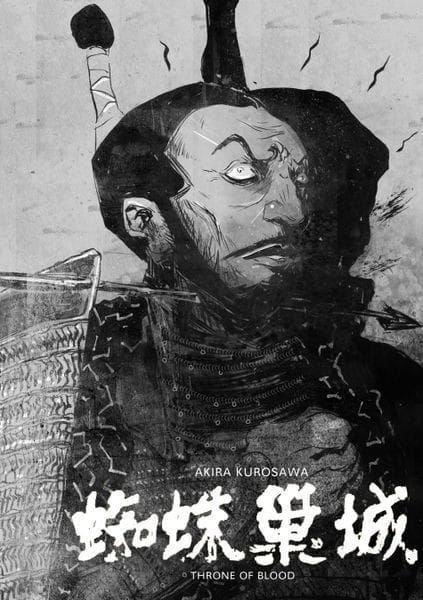Chilling Rendition: A Review of Throne of Blood
- stringsandscenes
- Mar 11, 2024
- 2 min read

Akira Kurosawa's masterpiece, Throne of Blood, launched in 1957, is not only a movie but a blood-curdling reinterpretation of Shakespeare's Macbeth, transposed to the horror of feudal Japanese brutality. It is a movie, a work of dark genius, in which those themes are transferred to the military epic in Samurai. In this movie, Washizu, a valiant samurai, played with brutal fervor, becomes ambitious for power when he meets a prophetic encounter in the Spider's Web Forest. His ambition is fueled by his ruthless wife, Asaji (Isuzu Yamada), whose hunger for power, which grips them both, takes them towards a highly perilous course of murder and suspicion.
Kurosawa provides a fresh and rich interpretation of the themes relating to ambition, betrayal, and the corrupting impact of power by the inner struggles of characters. Visually rich in stark contrasts of light and shadow, the film will be understood from the insides of every scene. The score works, and the sets are sparse, and even most of the costumes have a sharp look. This conjures an atmosphere of much tension and dread.
It is Mifune's portrayal of Washizu, as well as Yamada playing Asaji, that is very effective. He exudes the acting of the fall into madness with high raw and animalistic energy. She is given a cold and ruthless aura in character with Yamada, which chills the viewer right down to his soul. Their performances are a strong testament to the harm that can occur when ambition takes over.
Throne of Blood is not just an interpretation; it's a reinterpretation of Shakespeare's play, infused with all sorts of Noh theater elements. All in all, the sparse sets, stark costumes, and the use of masks in some scenes all form part of the film's otherworldly atmosphere. It becomes even more beautiful, with a perfect adaptation of the styles of Shakespearean tragedy and Japanese aesthetics.
It's been more than half a century since the movie was released, but the ending remains as brutal as the rest of the film. Kurosawa doesn't care to show a softer side of Washizu's deeds; instead, he showed it in a very powerful and bloody fashion. The last shot of arrows raining down onto the castle is a poetic and frightening ending, which is a reminder of how fast a castle built on violence and deceit can collapse.
Throne of Blood is a movie that you can watch over and over and not tire of it. A cinema classic underlining the destructive nature of unchecked ambition, it poses strong questions about humanity. The strength of the direction by Kurosawa, the unforgettable performances and artistry by the cast, and the exquisite cinematography make this movie a must-watch for anyone claiming himself a cinephile.
-Ananya Nair





Comments